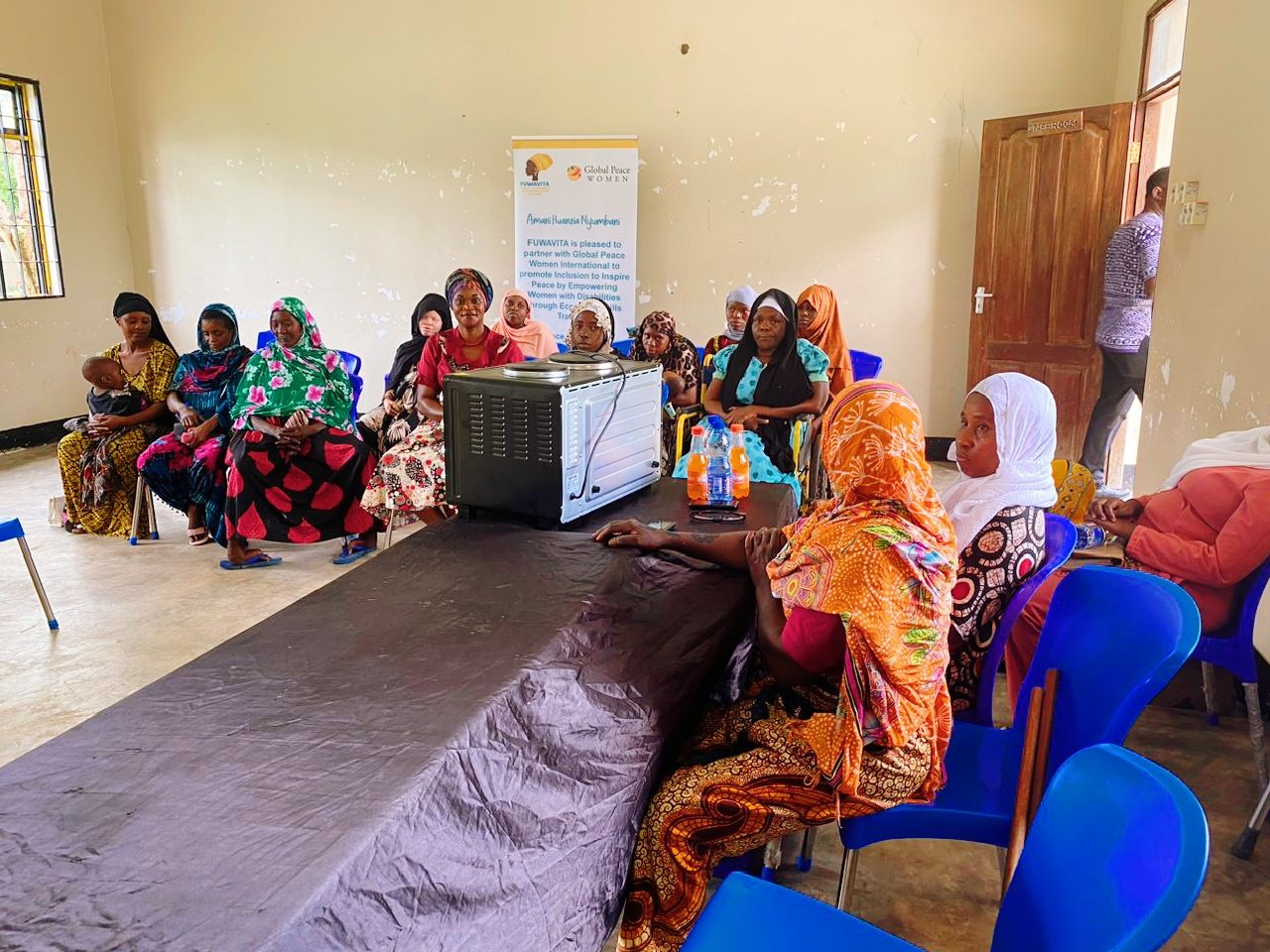Tanzanian initiative helps deaf women break silence through entrepreneurship

Founded in 2010 by Aneth Gerana Isaya, the first deaf woman to graduate from the University of Dar es Salaam, FUWAVITA was born out of necessity. After being denied employment because of the perceived cost of hiring a sign language interpreter, Aneth decided to take action.
In Tanzania's bustling port city of Dar es Salaam, a quiet yet powerful movement is redefining opportunities for women with hearing disabilities.
Tanzania Joy Women Entrepreneurship for the Deaf, popularly known in the Swahili language as FUraha ya WAnawake wajasiriamali kwa VIziwi Tanzania (FUWAVITA), is empowering deaf women to become business leaders, breadwinners, and changemakers in their communities.
More To Read
- Tanzania dispatches envoy to Brussels to avert Sh23.3 billion EU aid freeze
- European Parliament moves to block Sh23.44 billion aid to Tanzania after post-election violence
- Tanzania dismisses EU sanctions threat over human rights violations
- Tanzania challenges EU debate on Tundu Lissu and post-election crisis
- ICC urged to probe Tanzania over post-election civilian killings
- US Senate Committee on Foreign Relations calls for probe into Tanzania election violence
Founded in 2010 by Aneth Gerana Isaya, the first deaf woman to graduate from the University of Dar es Salaam, FUWAVITA was born out of necessity. After being denied employment because of the perceived cost of hiring a sign language interpreter, Aneth decided to take action.
"I was told I couldn't be hired because communication would be too difficult," Aneth, who is currently pursuing a master's degree in international development, told Xinhua recently in a written interview.
"That moment pushed me to create something that would prove our worth and potential," she added.
From that determination grew a nationwide movement that now supports more than 3,500 women with disabilities across Tanzania. FUWAVITA's mission is clear: to equip deaf and disabled women with the tools they need to achieve economic independence and social dignity.
Through hands-on training in skills such as peanut butter production, poultry farming, handicrafts, and even wine and chilli making, the organisation provides not just knowledge but also startup capital and equipment. As a result, women who once relied on family support are now running their own businesses and making significant contributions to their communities.
Among them is 45-year-old Mwajuma Ally Mwambo, the FUWAVITA secretary who now runs a thriving peanut butter and wine business. "Before FUWAVITA, I depended on others for survival. Now, I support my family and have hope for the future," she said.
Seated beside her colleague and fellow trainer, Mwambo spoke to Xinhua through a sign language interpreter. She joined the group in 2016 after learning about it through friends and social media, and has since been deeply involved in passing on the experience to other women with hearing disabilities.
"Through these activities, I am now able to earn an income to support my children's education and meet other family needs," Mwambo said.
Despite the successes, challenges remain. Communication remains a significant hurdle, especially when marketing products in communities with a limited understanding of sign language.
"If more people in society learned sign language, many of these barriers would disappear," Mwambo said.
Looking ahead, FUWAVITA plans to establish a large-scale production facility to expand operations and employ more individuals with disabilities. Mwambo believes such initiatives will not only improve livelihoods but also break stereotypes about dependency.
"For women facing challenges, whether deafness or otherwise, FUWAVITA is a place where you can learn skills, create products, and contribute meaningfully to your family and society," she said.
The impact stretches far beyond income generation. FUWAVITA actively combats gender-based violence and exploitation by fostering self-reliance. It also advocates for the recognition of Tanzanian sign language and partners with institutions such as the University of Dar es Salaam to expand interpreter services and enhance access to education.
Aneth's advocacy has already yielded lasting change. She successfully pushed for the hiring of the university's first sign language interpreter, paving the way for future deaf students.
"True success isn't just about earning certificates. It's about the mark you leave behind," she said
Today, FUWAVITA operates in several regions, including Dodoma, Mbeya, Iringa, Coast and Shinyanga. Its model, combining training, startup support and advocacy, is increasingly seen as a blueprint for inclusive development.
"Our disabilities do not define us. We are defined by our courage to rise above them," Aneth said.
Top Stories Today












































